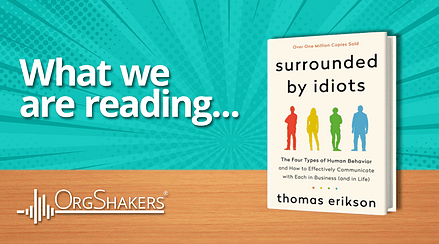Menu

Proactive Retention Strategies: Why Anticipating Employee Needs Matters
In today’s competitive business landscape, retaining top talent is no longer a reactive exercise. HR leaders and business owners increasingly understand that proactive retention strategies are essential for keeping employees engaged, motivated, and committed.
Rather than waiting for disengagement or turnover to occur, proactive retention focuses on anticipating challenges and addressing them before they impact the workforce.
When implemented effectively, these strategies benefit both employees and organizations to drive growth, productivity, and long-term loyalty.
What Are Proactive Retention Strategies?
A proactive retention strategy is a forward-thinking approach designed to prevent turnover before it happens. It is embedded into workplace culture, HR processes, and leadership practices, rather than reacting to staff departures after they occur.
Examples of proactive retention strategies include:
- Regular engagement and pulse surveys to detect early signs of dissatisfaction
- Structured career development and upskilling opportunities
- Transparent succession planning and progression pathways
- Wellbeing programs that address mental, physical, and emotional health
- Recognition and reward initiatives that reinforce contributions and purpose
By addressing issues before they escalate, organizations create a workforce that is resilient, loyal, and aligned with business objectives.
Why Proactive Retention Matters for Employees
1. Career Growth and Development
Employees want to feel that their roles are meaningful and that their contributions lead to growth. A proactive employee retention strategy ensures that development opportunities are visible and accessible, helping individuals build skills, confidence, and career progression.
2. Engagement and Motivation
When organizations actively support learning, wellbeing, and recognition, employees feel valued. Proactive retention fosters a sense of purpose and engagement — driving higher performance and commitment.
3. Confidence and Security
Employees who see that their organization anticipates their needs and invests in their future experience greater job satisfaction. Predictable progression, clear expectations, and support systems all contribute to confidence and loyalty.
The Organizational Benefits of Proactive Retention Strategies
1. Reduced Turnover and Cost Savings
Reactive retention, such as last-minute counteroffers or emergency engagement initiatives can be expensive and disruptive. Proactive retention strategies reduce turnover by addressing the root causes of disengagement, saving organizations significant recruitment and onboarding costs.
2. Improved Productivity
Proactively engaged employees are more motivated, efficient, and innovative. By investing in workplace retention strategies such as continuous learning and mentoring programs, organizations ensure that employees have the tools and support to perform at their best.
3. Stronger Employer Brand
Organizations that prioritize proactive retention position themselves as employers of choice. Investing in HR retention strategies signals to current and future employees that the business values its workforce and is committed to their long-term success.
4. Future-Proofed Workforce
By anticipating skills gaps, wellbeing concerns, and career development needs, businesses remain agile. Proactive retention ensures the workforce is adaptable and prepared for market changes, technology adoption, and evolving business demands.
Implementing a Proactive Employee Retention Strategy
1. Understand Your Workforce
Regularly collect feedback, analyze engagement data, and identify trends in turnover or dissatisfaction. Knowing your people’s needs is the first step toward effective retention.
2. Invest in Career Development
Offer training programs in the workplace, mentorship, and structured growth opportunities. Employees who see a clear path forward are more likely to stay engaged and committed.
3. Foster a Culture of Recognition
Recognition should be continuous and meaningful. Celebrate achievements, milestones, and innovation to reinforce a sense of value and belonging.
4. Prioritize Wellbeing
Proactively addressing physical, mental, and emotional health ensures employees feel supported. Flexible policies, wellness initiatives, and access to resources build trust and reduce stress.
5. Communicate Transparently
Keep employees informed about business goals, career opportunities, and organizational changes. Transparency builds trust and encourages alignment between individual and organizational objectives.
By embedding these practices into the business, your HR teams can create an environment where retention is built-in, not reactive.
Proactive Retention in Action
Consider an organization that implements proactive strategies: employees have access to continuous learning, mentorship, wellbeing initiatives, and transparent career pathways. Leadership checks in regularly, engagement surveys identify potential issues early, and recognition is part of daily operations.
The result? Higher engagement, reduced turnover, a stronger culture, and a workforce prepared to adapt to change, all without waiting for crises to occur.
Creating your Proactive Retention Strategies
At OrgShakers, we help organizations design and implement proactive retention strategies tailored to their culture and business goals. Our team works with HR leaders to build frameworks that improve employee satisfaction, engagement, and long-term retention.Ready to strengthen your workforce and future-proof your business? Contact us today to discover how our HR retention strategies can make a tangible difference.



